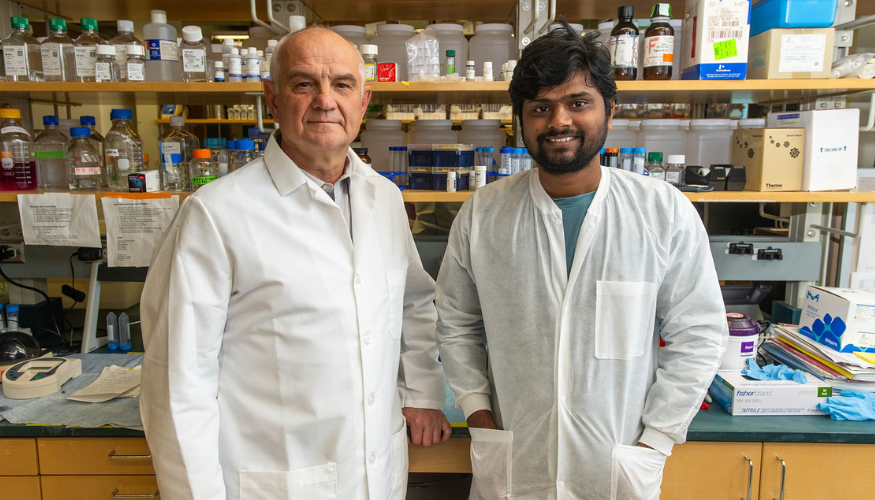Boston University researchers announce breakthrough Tuberculosis therapy

Researchers from New England Council member Boston University (BU) have published a study indicating a potential new way to “tweak” the immune system to resist tuberculosis.
Although tuberculosis (TB) rates have declined in the Americas and Europe, more than a million people worldwide still die from the respiratory disease annually. According to public health experts, the vaccine is less effective in older age groups, and as bacteria become more resistant to antibiotic therapies, TB rates around the world are on the rise. For that reason, a team led by BU researchers Igor Kramnik and Shivraj M. Yabaji is working on a method to transform vulnerable white blood cells into resilient ones, potentially enhancing the body’s ability to control TB infection and reduce inflammation caused by the disease. With further funding, the researchers believe this method might prove a long-term strategy for resisting TB, as it is host-directed rather than targeting the pathogen itself.
“We hope that our research will contribute to the development of more effective treatments for TB by better understanding how to fine-tune the activation states of immune cells,” said Dr. Yabaji, the paper’s lead author. “This could potentially lead to therapies that target host immunity to tuberculosis.”
The New England Council would like to commend Boston University and the research team for their dedication to protecting public health.
Read more on Boston University’s research periodical, The Brink.